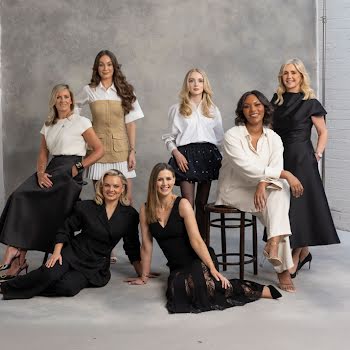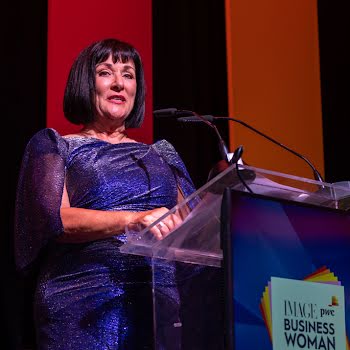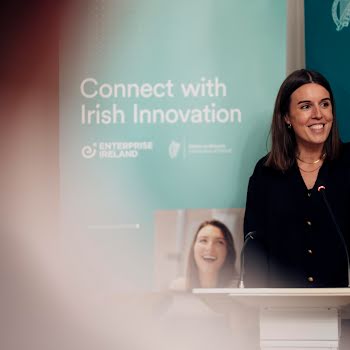
“Do something today that your future self will thank you for”: PwC’s Aisling Curtis on why the best businesses embrace change


In business, transformation is key to staying ahead of the game, but it’s not always easy to navigate. That’s where Aisling Curtis, Market Leader for PwC’s Strategic Alliances, comes in.
Change provokes different reactions amongst people. We can be fearful of it, or avoid it, even if we know it’s probably for the best. But it takes a certain kind of person to actively seek it out, to be excited by newness. Aisling Curtis is one such person.
As a Market Leader for PwC’s Strategic Alliances, her role is centred around helping businesses make changes. Utilising their relationships with strategic alliance partners like Microsoft, Salesforce, and SAP, her team helps clients transform in a number of ways.
“It’s about helping them find growth,” Aisling explains. “Whether it’s disrupting a business model, a cultural or finance transformation, something protective like dealing with threats from cybersecurity, or meeting needs like sustainability reporting.”
As a new hire, and leading this new venture for PwC, it’s an exciting time, and Aisling is totally in her element. Her career has brought her to various roles in organisations including Vodafone and Microsoft, but the thing that she is always drawn to, she says, is businesses embarking on new ventures.
“When I was in Vodafone, my role was in developing platforms that would grow the business and change the customer experience. At Microsoft, it was about leading teams, but it was also market facing, using technology to enable growth. Now in PwC, it’s a meeting point between human-led change and technology, and that’s what excites me the most.
“I’ve always been attracted to businesses that were going through massive change. When that’s happening, I want to go straight into it – how can I help, how can I have impact, how can I be part of leading my team and leading the broader organisation on that journey? That really excites me.”
Where PwC comes in, Aisling explains, is ensuring that any changes businesses make will work across the entire enterprise. Is it in line with their long-term goals? How will it fit into their existing culture?
It’s thinking about how best to use new technology that will complement the work, and people of a business. “Change just for the sake of it, or because everybody else is doing it isn’t necessarily good. It needs to be considered in the context of your business.”
PwC has recently announced at a network level an investment of over a billion US dollars to expand and scale its generative AI capabilities in collaboration with Microsoft, and this is a great example of the kind of technology that can be a huge help to businesses, but only if used correctly.
“With something like generative AI, it can enable transformation and change,” Aisling says, “But it’s about making sure that that’s done in an ethical and trusted way.” Other examples include businesses harnessing cloud computing to make their systems more secure. Finance transformation might see them using technology to automate processes. But as Aisling points out, “It’s not enough to have access to this technology, because one of the biggest issues with technology in any industry is that businesses might buy it, but they don’t necessarily change their processes or help their teams adopt it. That’s what we help clients with.”

How new technology fits into a company’s culture is also an often overlooked aspect, Aisling says.
“There needs to be principles and some sort of policy where people can understand what’s appropriate ethically, and then also make sure that it’s a fit for the culture of the organisation. If you’re introducing a new productivity suite, is it OK for it to send a mail at three o’clock on a Saturday? Probably not. If you’re using generative AI, you need to make sure that it’s used with integrity, that people are using it for the right things for the organisation.”























